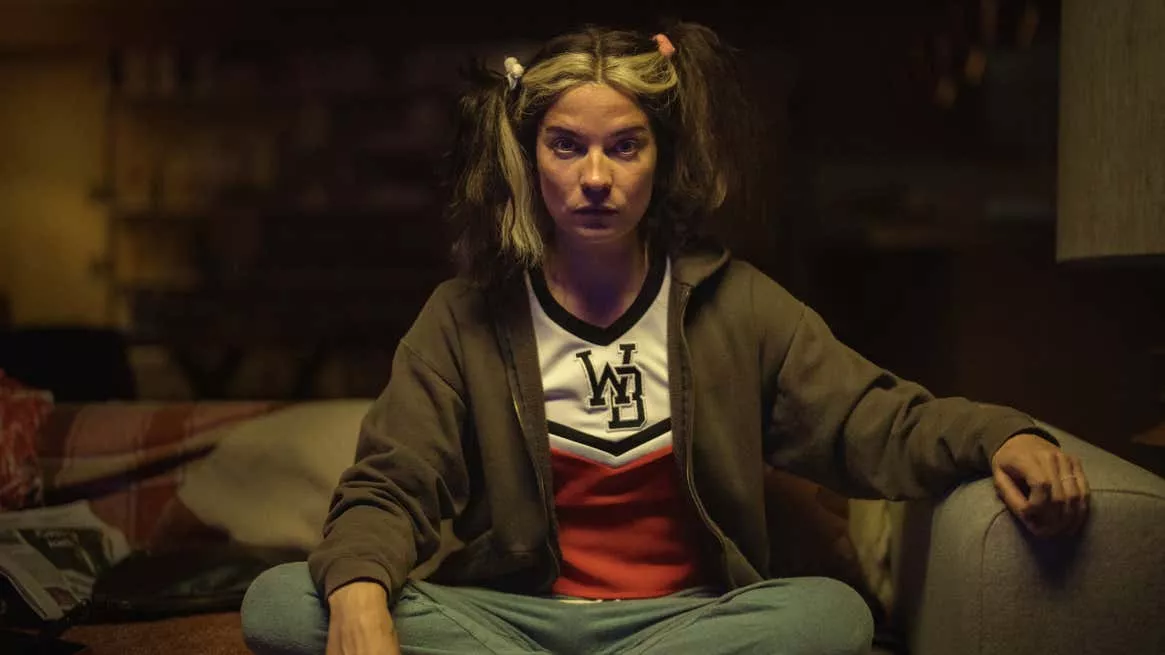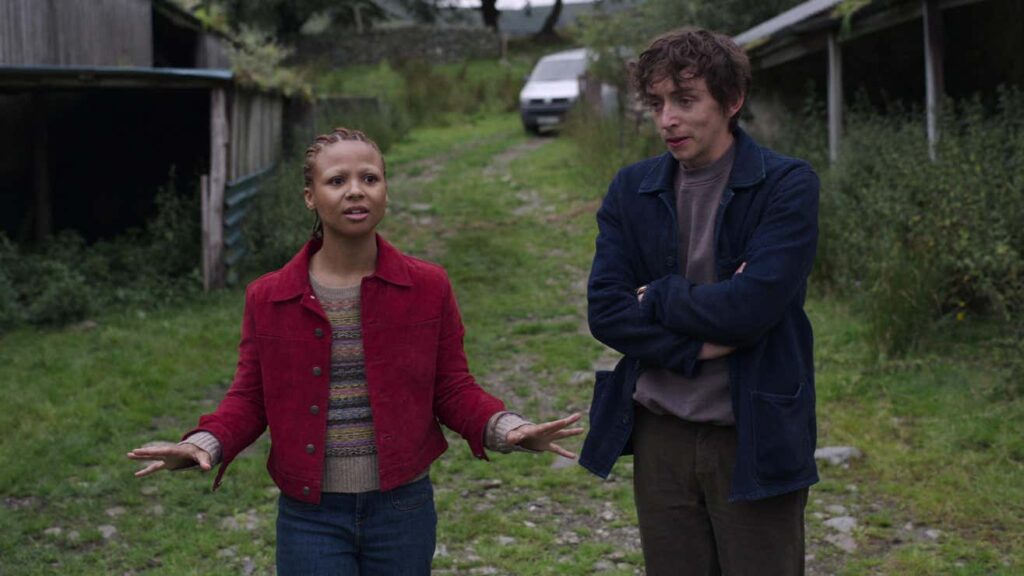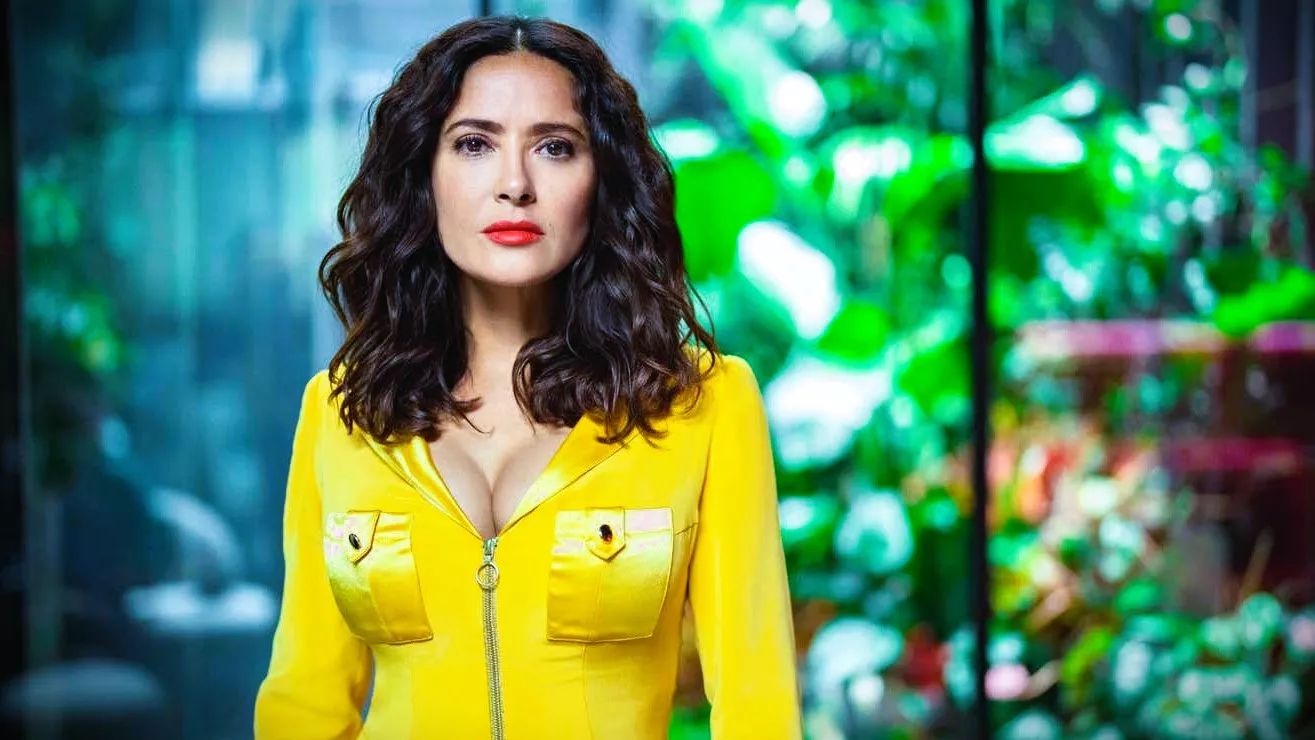Charlie Brooker‘s acclaimed anthology series makes a highly anticipated comeback on Netflix, following a substantial break. In its latest installment, the show fearlessly delves into the profound vulnerabilities of humanity, unafraid to explore both contemporary and nostalgic themes.
Netflix’s prized gem, Black Mirror, has consistently captivated audiences with its dark and thought-provoking speculations on our not-so-distant future. The series has endured impossibly high expectations, with viewers meticulously dissecting each episode, analyzing references and Easter eggs with fervor. While some have heeded its cautionary tales, the show has faced unimaginative and misinformed criticism for its perceived “technology is bad” messaging.
Now, after a grueling four-year wait, Black Mirror returns with its highly anticipated sixth season, premiering on June 15. However, this time, it defies expectations in a fascinating twist. Unlike previous seasons, which focused exclusively on lives invaded, manipulated, and transformed by technology, the new season shifts its gaze towards the corruptibility of humanity.
From lust to envy, pride to wrath, this iteration of Black Mirror explores the fundamental motivations behind our everyday or extraordinary transgressions. Notably, two episodes of this season shed the trappings of modern technology, setting their stories in the 1970s and the early 2000s. These installments exude a quiet confidence in their narratives, allowing ample time to delve into the nuances of human moments often overshadowed by the likes of swarming robotic bees. As a result, the titular black mirror that reflects our reality is now firmly pointed back at us.

The opening episode, “Joan Is Awful,” sets the stage for this unexpected shift in tone. Anchored by the delightful performances of Annie Murphy and Salma Hayek, it weaves a tale about an ordinary woman with extraordinary hair who is taken aback to discover a global streaming platform has launched a tawdry television drama adaptation of her life, flaws and all. While it offers moments of laugh-out-loud humor, a welcome addition, it falls slightly short compared to the other stories in this new collection. There’s a lingering sensation of familiarity with echoes of “South Park,” which can prove mildly bothersome once the connection is made. However, its wandering middle section eventually redeems itself through a wildly meta ending. Moreover, its exploration of privacy ethics and media consumption seamlessly sets the stage for the next episode.
In the second chapter, “Loch Henry,” we follow a pair of ambitious young individuals (Samuel Blenkin and Myha’la Herrold) as they venture into a tranquil Scottish town, intending to create a refined and sophisticated documentary about a guardian of the natural world. Instead, they find themselves sharing a pint with Stuart (played by Daniel Portman, also known as Podrick Payne, the unsuspecting darling of Westerosi brothels in Game of Thrones) and quickly become entangled in his tale of a chilling true crime that shook the town years ago. Unfortunately, Stuart’s father, a booze-loving figure portrayed by the almost suspiciously renowned John Hannah, vehemently opposes their efforts to dig up the past. It’s a twist wrapped within a mystery that, while it may not keep you guessing until the very end, guarantees a delicious sense of impending doom.

The third installment of the season, “Beyond The Sea,” replaces the sense of impending doom with horrified awe, plunging us back into the familiar darkness associated with the series. Set in an alternate 1969, the story follows two men, portrayed by Josh Hartnett and Aaron Paul, on a perilous high-tech mission. Seeking solace and escape in the realm of robotics, they find their sanctuary shattered by an unimaginable tragedy. Now, one of them must go to extraordinary lengths to aid their near-catatonic companion. While the technology in this episode may feel like a thinly veiled plot device, its true power lies in the commanding performances. From Rory Culkin’s menacing portrayal to Kate Mara’s gentle warmth and the escalating intensity of Paul and Hartnett, the cast elevates the story to gripping heights.
The penultimate episode, although deviating from the tech-focused narrative, emerges as one of the favorites. Set in the early 2000s, it revolves around Clara Rugaard as Mazey Day, a deeply troubled celebrity relentlessly pursued by paparazzi. Enter Bo, played by Zazie Beetz, an individual desperate to capture that one lucrative $30,000 photo of Mazey to secure her financial stability and finally escape her bothersome flatmate. However, as Bo persistently trails Mazey across the country, she discovers that the star’s downward spiral conceals hidden depths. The revelations that unfold will leave you howling in astonishment before the credits roll.
“Demon 79” perfectly embodies the concept of saving the best for last. Once again, the narrative transports us back in time, this time to 1979, without focusing on the perils of technology. Instead, we meet Nida, portrayed by Anjana Vasan, a lonely sales assistant who inadvertently summons a demon dressed in disco attire during her lunch break. Reminiscent of a twisted version of “It’s A Wonderful Life,” we learn that Paapa Essiedu’s Gaap must earn his demonic wings by persuading Nida to carry out three human sacrifices. Fortunately (or unfortunately), Gaap possesses undeniable allure and charisma, and he holds the ultimate leverage: if Nida doesn’t start killing soon, the world will meet its apocalyptic demise.
The result is an eclectic anthology that encompasses a wide range of tones, genres, and subjects—exactly what one would expect from such a format. This collection offers a brilliant weekend binge-worthy experience. Admittedly, there is a hint of hypocrisy in the show’s critical stance towards streaming platforms, considering its close affiliation with Netflix. Some episodes may overstay their welcome by being slightly longer than necessary. Additionally, Charlie Brooker’s departure from his usual exploration of technological advancements might disappoint some steadfast fans. However, there’s no denying that this approach works, and it works exceptionally well.
In the early days of Black Mirror, each episode had a charming indie quality. Nowadays, it boasts a cinematic polish and features obscenely talented casts that have become synonymous with Hollywood production budgets. Instead of diluting the show’s impeccable satire, Brooker has leveraged these resources to his advantage, resulting in more impressive world-building, deeper explorations of human emotions, and narratives that are infinitely more ambitious, thought-provoking, and emotionally resonant. Rest assured, the playfulness of the series remains intact. There’s even a scene set inside a Catholic Church that delivers the same jaw-dropping WTF vibes reminiscent of “The National Anthem” episode from the early seasons.
This is the kind of TV that demands your full attention, urging you to put away your phone and immerse yourself in its captivating stories. After the divisive reception of the fifth season, which led many to believe that the show had overstayed its welcome, it is genuinely reassuring to witness Black Mirror’s return to form. Let’s keep our fingers crossed that there are no more unexpected twists waiting around the corner.
